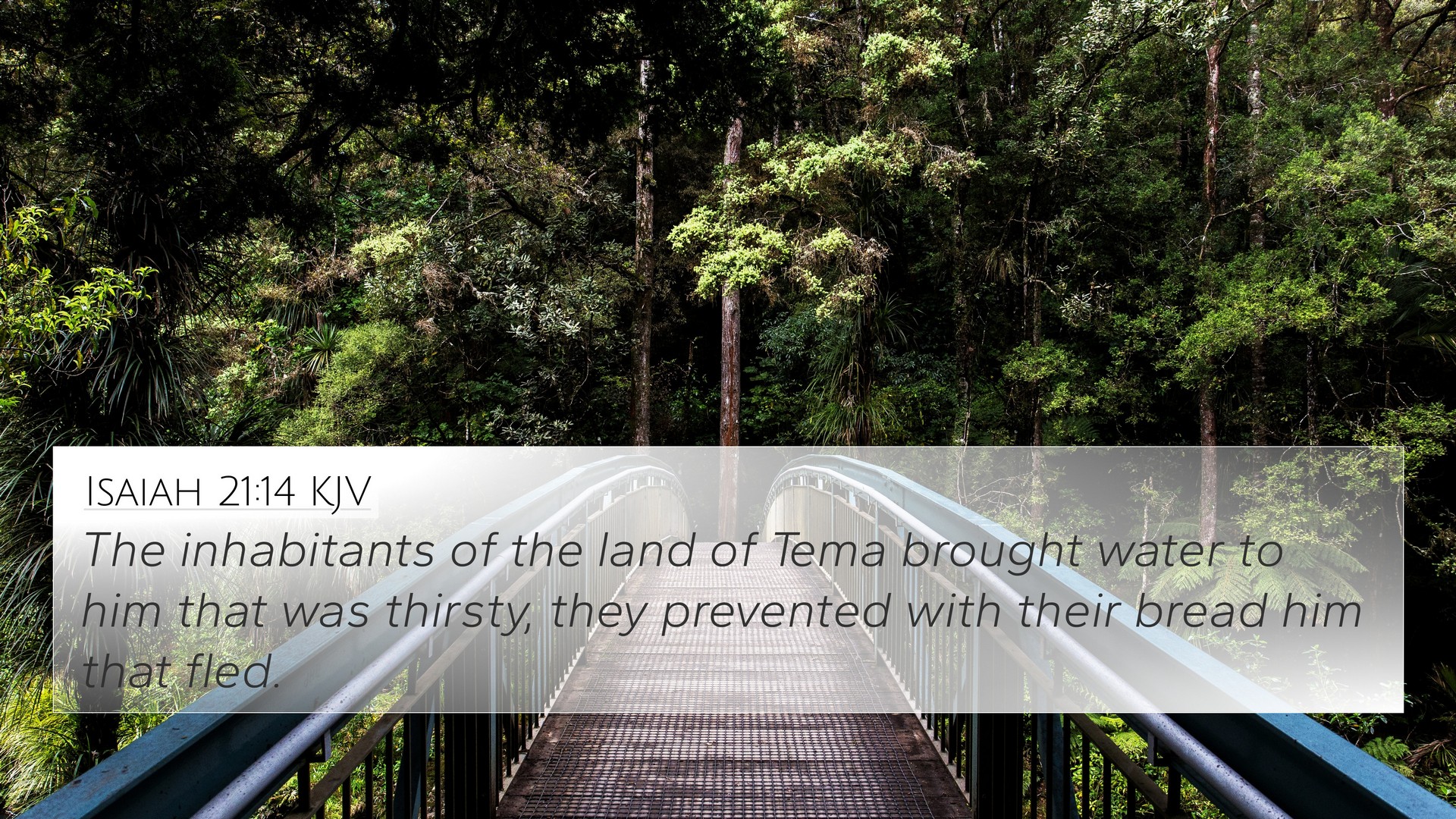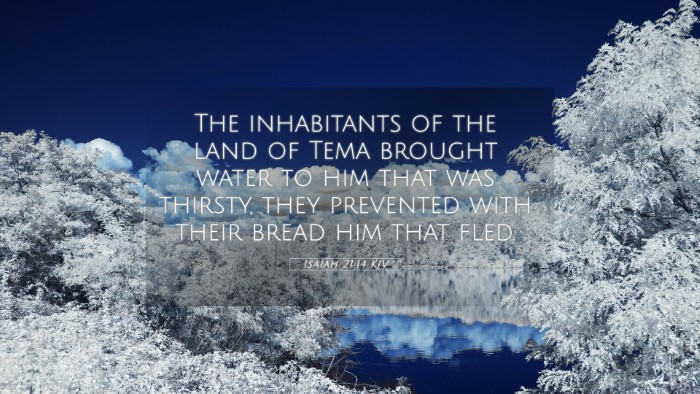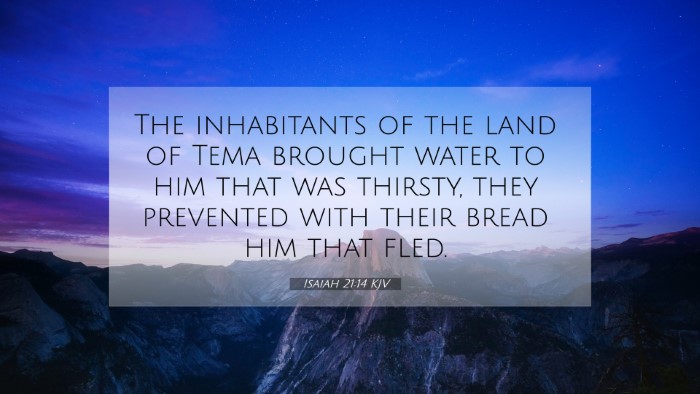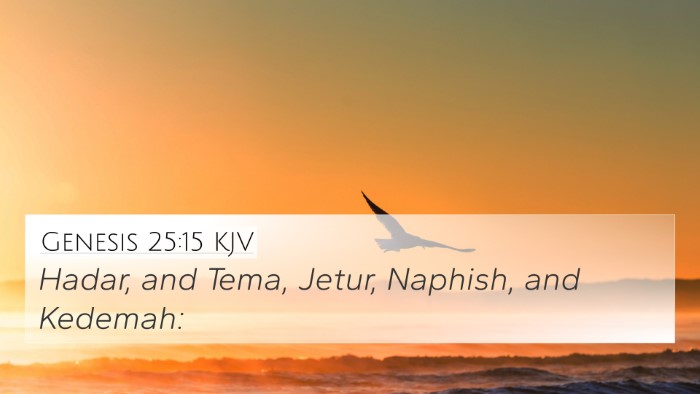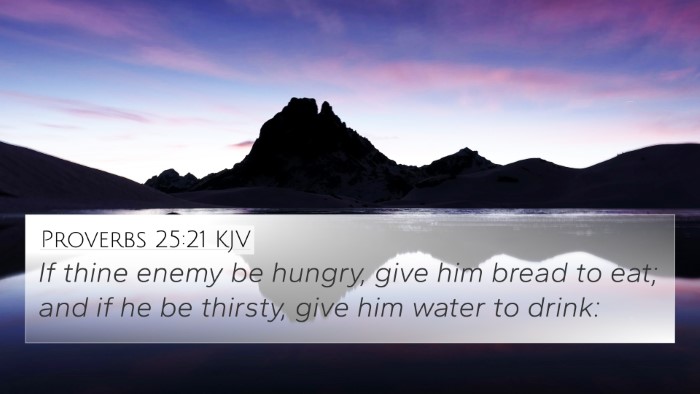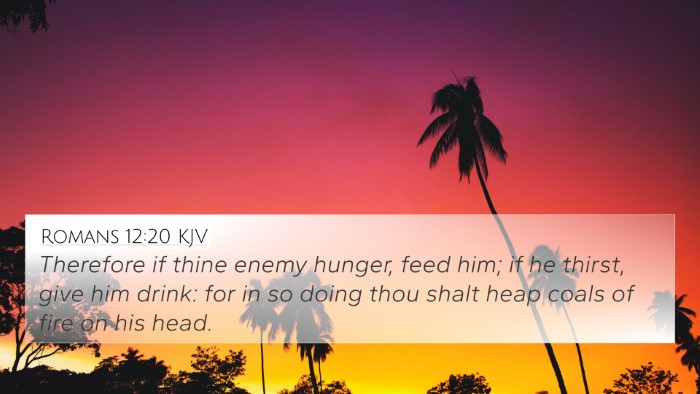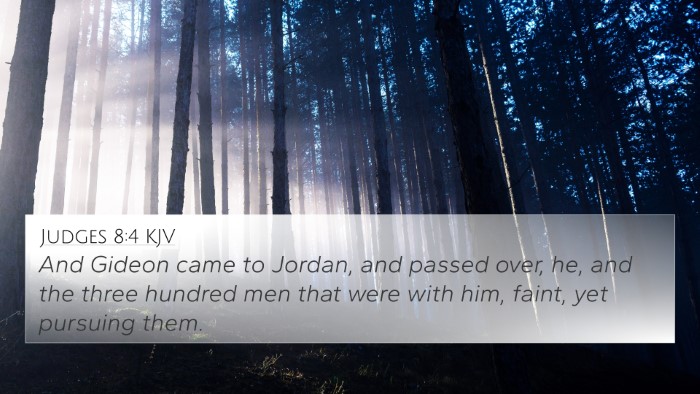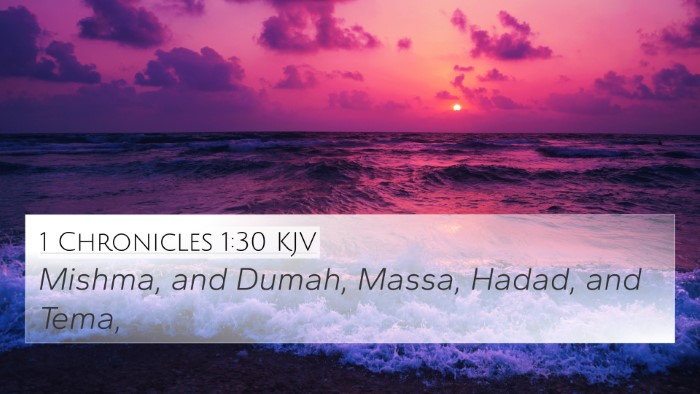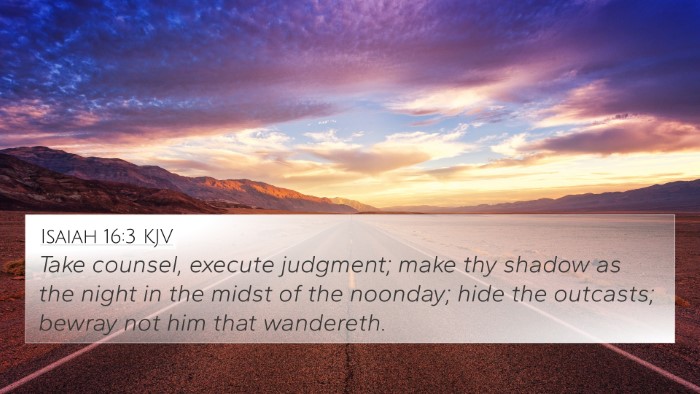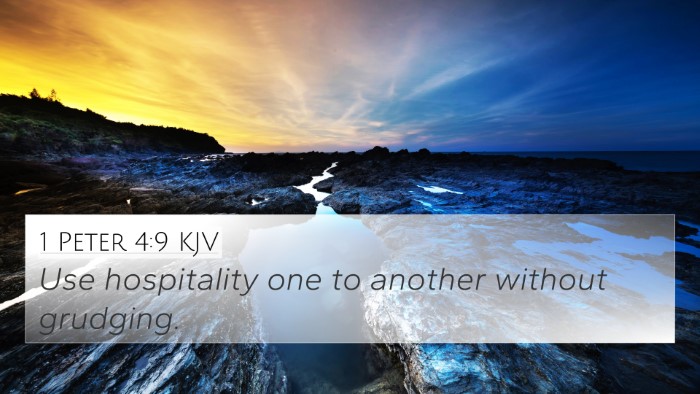Understanding Isaiah 21:14
Isaiah 21:14 reads: "Bring water to him who is thirsty; meet the fugitive with bread." This verse speaks to the urgent call to assist those in need, particularly the weary and distressed.
Summary of Isaiah 21:14
In the context of Isaiah, this verse highlights the need for compassion towards the exiles or those fleeing from danger. It emphasizes the duty of the surrounding communities to provide care and sustenance to those who are in a vulnerable state, thereby reflecting the broader themes of mercy and justice in the biblical narrative.
Commentary Insights
-
Matthew Henry's Commentary:
Henry interprets this verse as an important directive to offer aid to those who are struggling. He emphasizes God's care for the needy and the expectation that His people will respond with kindness and generosity to those in distress.
-
Albert Barnes' Notes:
Barnes highlights the urgent need represented in this verse, demonstrating how those fleeing from danger often face physical and spiritual thirst. He connects this to the larger message of providing not only physical sustenance but also spiritual nourishment.
-
Adam Clarke's Commentary:
Clarke reflects on the historical backdrop of this passage, noting that it pertains to the watchmen or guardians who should be vigilant in their roles. He elucidates that helping the needy aligns with God's expectations of ethical living among His followers.
Bible Cross-References
Isaiah 21:14 resonates with several other scriptures that discuss themes of compassion and assistance:
- Isaiah 58:10: "And if you spend yourselves in behalf of the hungry and satisfy the needs of the oppressed, then your light will rise in the darkness."
- Matthew 25:35: "For I was hungry and you gave me something to eat, I was thirsty and you gave me something to drink."
- Proverbs 25:21: "If your enemy is hungry, give him bread to eat; and if he is thirsty, give him water to drink."
- James 2:15-16: "Suppose a brother or sister is without clothes and daily food. If one of you says to them, 'Go in peace; keep warm and well fed,' but does nothing about their physical needs, what good is it?"
- Lamentations 3:22-23: "The steadfast love of the Lord never ceases; his mercies never come to an end; they are new every morning; great is your faithfulness."
- John 7:37: "On the last day of the feast, the great day, Jesus stood up and cried out, 'If anyone thirsts, let him come to me and drink.'
- Galatians 6:2: "Carry each other’s burdens, and in this way you will fulfill the law of Christ."
Connections Between Bible Verses
Isaiah 21:14 provides a foundation for understanding the biblical call to care for others. It connects deeply with Jesus' teachings on compassion and serves as a bridge linking Old Testament principles to New Testament applications.
Scriptural Cross-Referencing
The act of water and bread signifies both physical and spiritual nourishment. In examining Isaiah 21:14 and its cross-references, one can observe:
- Psalm 107:9: "For he satisfies the thirsty and fills the hungry with good things."
- Matthew 6:31-33: "Therefore do not be anxious, saying, 'What shall we eat?' or 'What shall we drink?' or 'What shall we wear?' … But seek first the kingdom of God and his righteousness, and all these things will be added to you."
Thematic Bible Verse Connections
The theme of providing for others runs throughout Scripture, illustrating God’s heart for those in need. Isaiah 21:14 stands as part of this broader tapestry and encourages believers to reflect the compassion of Christ in their actions.
Bible Verse Parallels
In discussing Isaiah 21:14, it is essential to note parallels with other texts that emphasize action in the face of need:
- Provision for the needy (Deuteronomy 15:11)
- Welcoming the stranger (Exodus 22:21)
- The Good Samaritan’s care (Luke 10:33-35)
Conclusion
Isaiah 21:14 acts as a call to action, linking compassion to faith. By examining its insights through public domain commentaries and connecting it with relevant scripture, one can grasp its significance in the larger biblical narrative. This verse underlines the importance of mercy, highlighting that as we meet the needs of the thirsty and hungry, we reflect the character of God.
